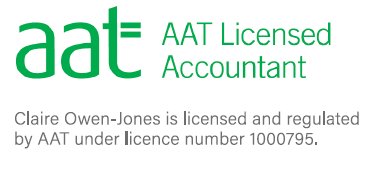I've read several accountancy blogs recently where they interview business owners. When discussing figures the business owner is always quoted as saying that their accountant is "doing the numbers". It gives the impression that they have a checklist of jobs and once they've engaged the services of an accountant a big tick is put in the box next to the numbers. Ah great, they say, no need to deal with those pesky numbers again.
Now having worked in accountancy firms for over ten years I can confirm that there's doing the numbers and there's doing the numbers. A sentence that when written down looks like I've just repeated the same phrase twice, but trust me, my tone changed when I read them out loud.
My main concern however, when I read that an accountant is "doing the numbers" is the detachment element. Let me explain...
My primary language is English but my business speaks in numbers so for me to understand it, I kind of need to learn at least a little bit of numbers. It's like going to France and making sure you can say hello, thank you and recognise the word for snails. You don't need to be fluent but you want to be polite and make sure you don't eat anything that you don't want to.
If you fail to understand numbers, you'll find yourself in a situation where one day you'll ask your business how it is and it will reply 7. You'll then nod, say something like "that's good" and wander off to do some dental work. You asked a question, your business gave you an answer, job done.
But is a number ever an answer? I think numbers should always lead to questions. Do you know if 7 is good? Are you happy with it? Do you want to change it?
Imagine you meet your business outside of work and ask how they are. They reply 7. If you understand numbers you'll be able to ask them what's wrong or even, what's gone right. Instead of passing your numbers over to someone else and forgetting about them until you want to calculate your tax, engage with them, ask questions and monitor the answers.
This is where systems are great. Provided they are followed correctly, a system should mean that you get a consistent outcome. So, say your receptionist followed a system that meant in your patient happiness surveys the front of house was always rewarded a consistent 8. You decide to aim for a 9 so you change something. The new system now generates a result of 7. Because of the systems you can now measure the changes and you can also give the number a context, so in this case 7 is bad. If you didn't have systems and your team members made things up as they went along or each team member did their own thing, you would be unable to accurately measure the results and be able to allocate the things that really worked for you.
So start a conversation with your Dental Practice and remember that the number is never the answer (unless the question is a sum).
Now having worked in accountancy firms for over ten years I can confirm that there's doing the numbers and there's doing the numbers. A sentence that when written down looks like I've just repeated the same phrase twice, but trust me, my tone changed when I read them out loud.
My main concern however, when I read that an accountant is "doing the numbers" is the detachment element. Let me explain...
My primary language is English but my business speaks in numbers so for me to understand it, I kind of need to learn at least a little bit of numbers. It's like going to France and making sure you can say hello, thank you and recognise the word for snails. You don't need to be fluent but you want to be polite and make sure you don't eat anything that you don't want to.
If you fail to understand numbers, you'll find yourself in a situation where one day you'll ask your business how it is and it will reply 7. You'll then nod, say something like "that's good" and wander off to do some dental work. You asked a question, your business gave you an answer, job done.
But is a number ever an answer? I think numbers should always lead to questions. Do you know if 7 is good? Are you happy with it? Do you want to change it?
Imagine you meet your business outside of work and ask how they are. They reply 7. If you understand numbers you'll be able to ask them what's wrong or even, what's gone right. Instead of passing your numbers over to someone else and forgetting about them until you want to calculate your tax, engage with them, ask questions and monitor the answers.
This is where systems are great. Provided they are followed correctly, a system should mean that you get a consistent outcome. So, say your receptionist followed a system that meant in your patient happiness surveys the front of house was always rewarded a consistent 8. You decide to aim for a 9 so you change something. The new system now generates a result of 7. Because of the systems you can now measure the changes and you can also give the number a context, so in this case 7 is bad. If you didn't have systems and your team members made things up as they went along or each team member did their own thing, you would be unable to accurately measure the results and be able to allocate the things that really worked for you.
So start a conversation with your Dental Practice and remember that the number is never the answer (unless the question is a sum).







